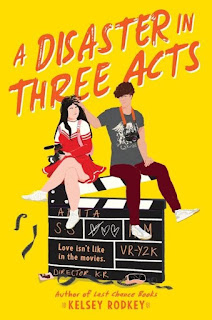Endangered
 By: Eliot Schrefer
By: Eliot SchreferLocation: FIC SCH
Genre: Arfica and animals and it is real!
Monica on Goodreads.com reviews this book. I like how she does it.. especially her reticence to read it as is this just another book that uses and glitzes and manipulates the stories of Africa?
"I absolutely did not want to read this book. The advance reader copy sat on my shelf for months untouched as I assumed it was yet another book offering a simplistic view of Africa, one that focused on the plight of an exotic animal while barely acknowledging the complications of the people who lived around it. Having lived in Sierra Leone for two years in the 70s, I'm techy about how the continent is represented, especially by well-intentioned outsiders who focus on its animals at the expense of its people. That said, I know that it is very, very hard to even begin to present to anyone, much less to a young person, the horrible complicated conflicts such as what happened in Sierra Leone a decade ago and what is still happening in the Democratic Republic of the Congo. Still it was only when I saw that the book was a finalist for the National Book Award that I finally picked it up. And then did not put it down again until I was done.
The story is from the point of view of Sophie, the product of a Congolese mother who runs a sanctuary for rescued bonobos and an American father. When her parents split up, because schooling would be better in the States she returned there with her father, coming back during vacations to be with her mother. As the book begins Sophie is traveling to her mother's sanctuary when she spots a young bonobo with a trader and buys him, recklessly ignoring the Congolese sanctuary worker who tells her they never do that, it will cause problems, that they only rescue those that are brought to them.
At the sanctuary Sophie works to save the young ape whom she names Otto. It takes no time at all for the two of them to become permanently connected, Sophie functioning as the young bonobo's mother. Schrefer quickly and effectively gives us a sense of the sanctuary, of Sophie's mother, the other workers, and the specifics of the bonobos who are the closest of the great apes to humans. Schrefer, without sentimentality, again and again throughout the book shows readers this commonality, making readers think hard about ourselves as humans and our relationship to others in this world.
Shortly after Sophie's arrival the war arrives at the sanctuary. Schrefer does not shy away at his depiction of the horrors of this. In fact, it was this that won me over completely. For I followed closely the conflict in Sierra Leone, a place I knew well long ago, and there are many commonalities to what has happened in the DRC; the drugged child-soldiers, the frightened villagers, the many dreadful things that have been reported from both regions are all too familiar to me. Schrefer presents them truthfully, at times terrifyingly, and sensitively all steadfastly through Sophie's eyes.
Unable to abandon Otto, instead of leaving the country with the UN, Sophie flees with him. At first she stays with other bonobos, but eventually she has to leave them too and sets out on a difficult journey to find her mother who had been releasing bonobos back into the wild in another part of the country when the war began.
Sophie is a remarkable character, full of grit and gumption, and readers are bound to be riveted as her efforts to save Otto and herself are tested again and again as they make their journey. Schrefer does an amazing job communicating their physical and emotional hardships, giving readers a feel for the community and ways of the bonobos and how they link to us humans, and also a straightforward view of the way the conflict affects humans as well, both the victims and the transgressors.
By the end, I was completely won over. Schrefer has crafted an outstanding work about Africa, about bonobos, and about the complexities of the relationship we humans have with the world around us."


Comments
Post a Comment